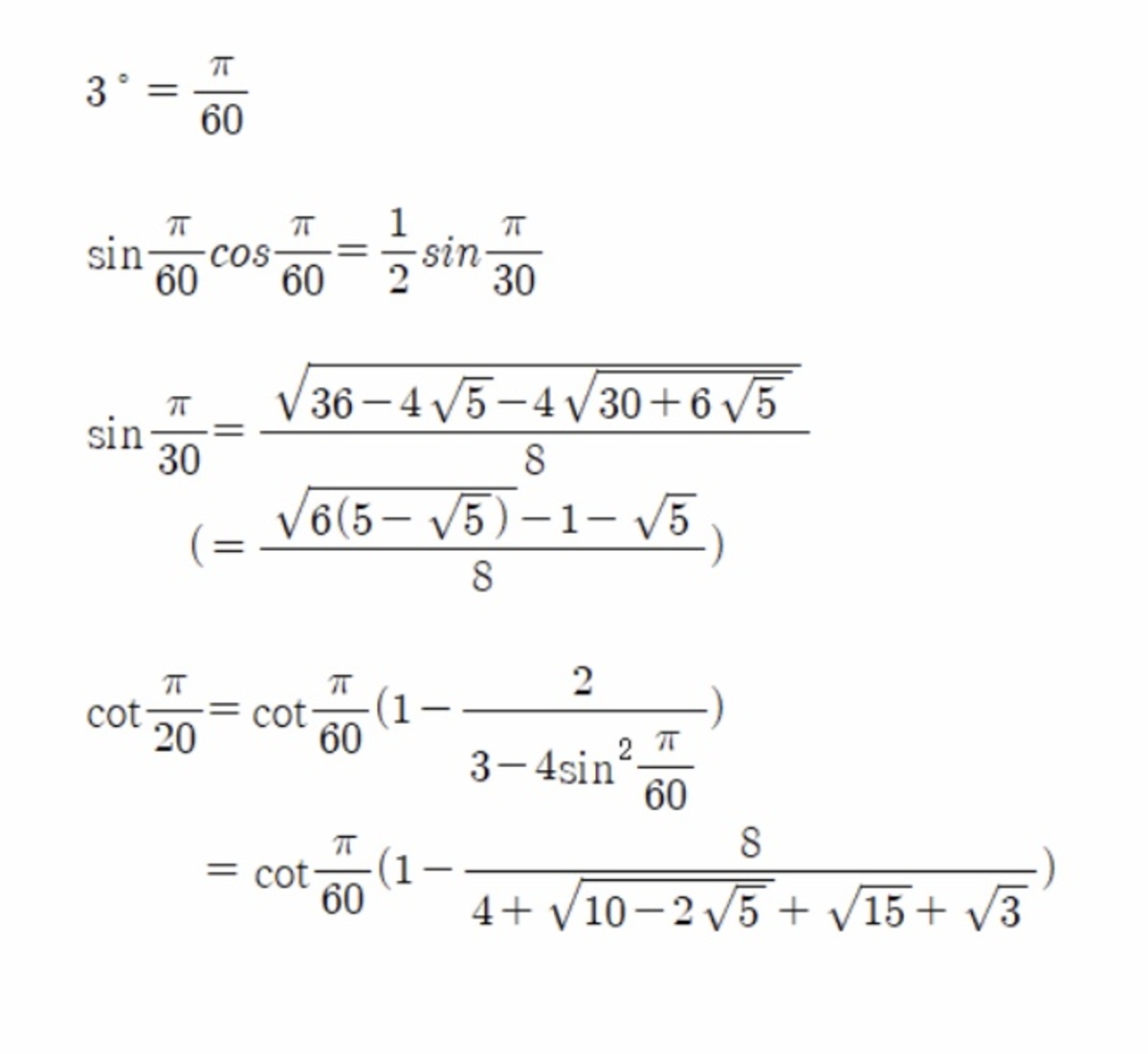Those nested radicals
n → ∞ lim c o t ( π 1 0 0 n 2 + n + 1 )
For integer n , the limit above can be expressed as
b − 4 5 − 4 3 0 + 6 5 a cos 2 ( 3 ∘ ) ( 1 − 4 + 1 0 − 2 5 + 1 5 + 3 c )
where a , b , and c are positive integers with a and b being perfect squares. Find a + b + c .
The answer is 60.
This section requires Javascript.
You are seeing this because something didn't load right. We suggest you, (a) try
refreshing the page, (b) enabling javascript if it is disabled on your browser and,
finally, (c)
loading the
non-javascript version of this page
. We're sorry about the hassle.
This problem can be solved easily as the following. For all integers n , cot ( n π + x ) = cot x . Since cot x is a continuous function,
Thus the answer is cot ( 2 0 π ) .
Here are some guides for getting the final result a = 1 6 , b = 3 6 , c = 8 (The following steps seem trivial.)